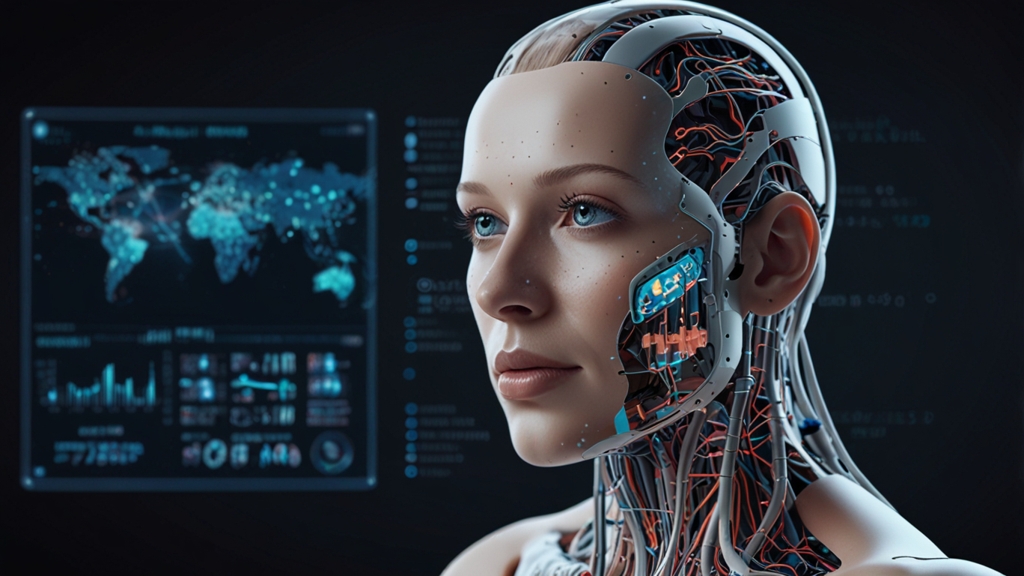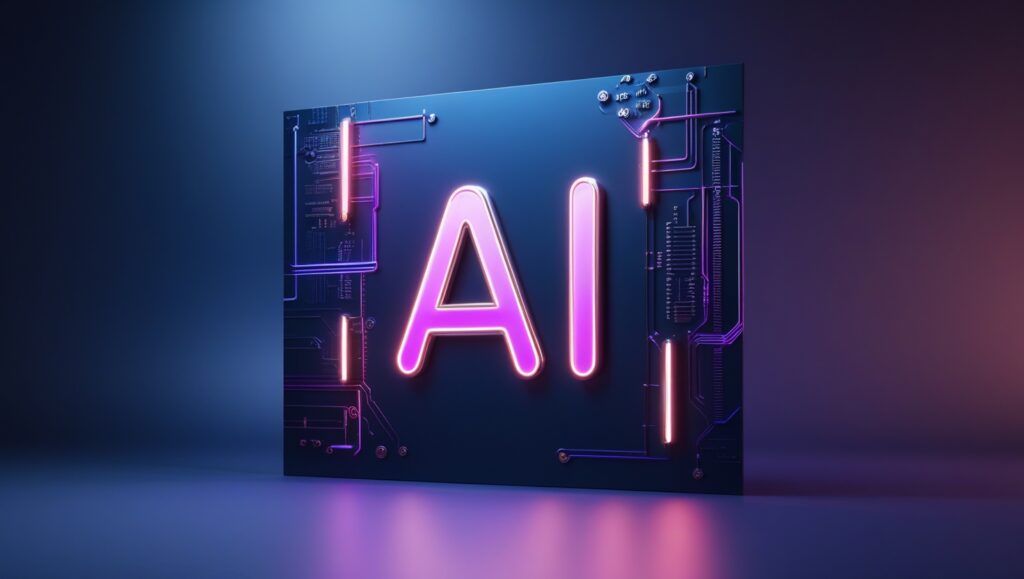AI in Healthcare: Unlocking Revolutionary Innovations for a Healthier Future
Artificial Intelligence (AI) is revolutionizing industries worldwide, and healthcare is no exception. From improving patient outcomes to optimizing operational efficiency, AI is transforming how we approach medicine. This blog dives into the role of AI in healthcare, exploring its applications, benefits, challenges, and the future it promises.

What is Artificial Intelligence in Healthcare?
Artificial Intelligence in healthcare refers to the use of machine learning algorithms and software to mimic human cognition in analyzing complex medical data. The primary goal of AI in this field is to enhance human capabilities and improve medical decision-making processes.
The Evolution of AI in Healthcare
AI’s journey in healthcare began with diagnostic systems in the 1970s. Today, advancements in big data, cloud computing, and deep learning have expanded its applications, from disease prediction to personalized medicine. Key milestones include:
- 1980s: Introduction of expert systems like MYCIN for diagnosing infections.
- 2000s: Adoption of AI-powered imaging tools.
- 2010s-Present: Integration of AI in drug discovery, robotic surgeries, and telemedicine.
Applications of AI in Healthcare
1. Medical Imaging and Diagnostics
AI algorithms analyze medical images such as X-rays, MRIs, and CT scans to detect anomalies like tumors or fractures. Examples include:
- Google DeepMind: Identifies eye diseases from retinal scans.
- PathAI: Enhances pathology diagnoses.
2. Drug Discovery and Development
AI accelerates the drug discovery process by analyzing data to predict potential drug compounds. For example:
- Atomwise: Uses AI to identify promising molecules for drug development.
- Insilico Medicine: Focuses on AI-powered drug discovery platforms.
3. Personalized Medicine
AI tailors treatments to individual patients by analyzing genetic, lifestyle, and clinical data. This approach ensures better outcomes and reduces adverse reactions.
4. Virtual Health Assistants
Chatbots and AI-powered apps provide health information, schedule appointments, and remind patients to take medications. Examples:
- Ada Health: A virtual symptom checker.
- Sensely: Helps manage chronic conditions.
5. Predictive Analytics
AI predicts disease outbreaks, patient deterioration, and treatment outcomes. Hospitals use this data to allocate resources effectively and improve patient care.
6. Robotic Surgeries
AI-powered robotic systems enhance precision during surgeries, reducing recovery times and complications. For example:
- da Vinci Surgical System: Assists in minimally invasive surgeries.
7. Administrative Automation
AI streamlines administrative tasks such as billing, scheduling, and patient record management, allowing healthcare professionals to focus more on patient care.
Benefits of AI in Healthcare

- Enhanced Accuracy: AI algorithms minimize human error, especially in diagnostics and imaging.
- Faster Decision-Making: AI processes vast amounts of data quickly, aiding timely decisions.
- Cost Efficiency: By reducing the need for repetitive tests and streamlining operations, AI lowers healthcare costs.
- Improved Accessibility: AI-powered telemedicine platforms provide access to healthcare in remote areas.
- Patient-Centric Care: Personalized treatment plans and virtual health assistants improve patient satisfaction.
Challenges in AI Adoption in Healthcare
1. Data Privacy and Security
Healthcare data is sensitive, and breaches can have severe consequences. Ensuring data security while complying with regulations like GDPR and HIPAA is crucial.
2. Bias in Algorithms
AI systems may inherit biases from the data they are trained on, leading to disparities in care.
3. Integration Issues
Integrating AI tools with existing healthcare systems and workflows can be challenging.
4. High Costs
Developing and deploying AI solutions requires significant investment, limiting accessibility for smaller healthcare providers.
5. Ethical Concerns
Questions around AI’s role in decision-making and the potential displacement of human jobs are ongoing debates.
Future Trends in AI Healthcare
1. AI-Powered Wearables
Devices like smartwatches and fitness trackers are evolving to monitor chronic conditions and detect health anomalies in real-time.
2. AI in Mental Health
AI chatbots like Woebot are already providing mental health support, and future systems may offer more nuanced emotional insights.
3. Genome Editing
AI tools like CRISPR are paving the way for advanced genetic therapies and disease prevention.
4. Decentralized Clinical Trials
AI can manage and analyze decentralized trial data, making drug testing more inclusive and efficient.
5. Augmented Reality (AR) and Virtual Reality (VR) Integration
AR and VR, powered by AI, are set to revolutionize medical training and rehabilitation therapies.
Real-Life Examples of AI in Action
- IBM Watson Health:
- Assists oncologists by suggesting personalized treatment options.
- Analyzes research papers and patient data.
- Zebra Medical Vision:
- Provides AI-powered radiology tools.
- Detects conditions like breast cancer and liver diseases.
- Butterfly iQ:
- A portable ultrasound device leveraging AI for diagnostics.
How AI Benefits Key Stakeholders
- For Patients:
- Faster diagnoses and treatment.
- Improved access to healthcare services.
- Personalized and precise medical interventions.
- For Healthcare Providers:
- Reduced workload with automated administrative tasks.
- Enhanced diagnostic accuracy and efficiency.
- Tools for better decision-making.
- For Researchers:
- Accelerated drug discovery and trials.
- Access to vast datasets for analysis.
Conclusion: The Road Ahead for AI in Healthcare
Artificial Intelligence holds immense potential to transform healthcare, making it more efficient, accessible, and patient-centric. While challenges remain, the benefits far outweigh the drawbacks. As AI continues to evolve, its integration with healthcare systems will redefine the future of medicine.
Healthcare providers, policymakers, and technology developers must collaborate to ensure ethical and equitable AI adoption. For patients, the promise of AI is a future where quality care is not a privilege but a universal right.









